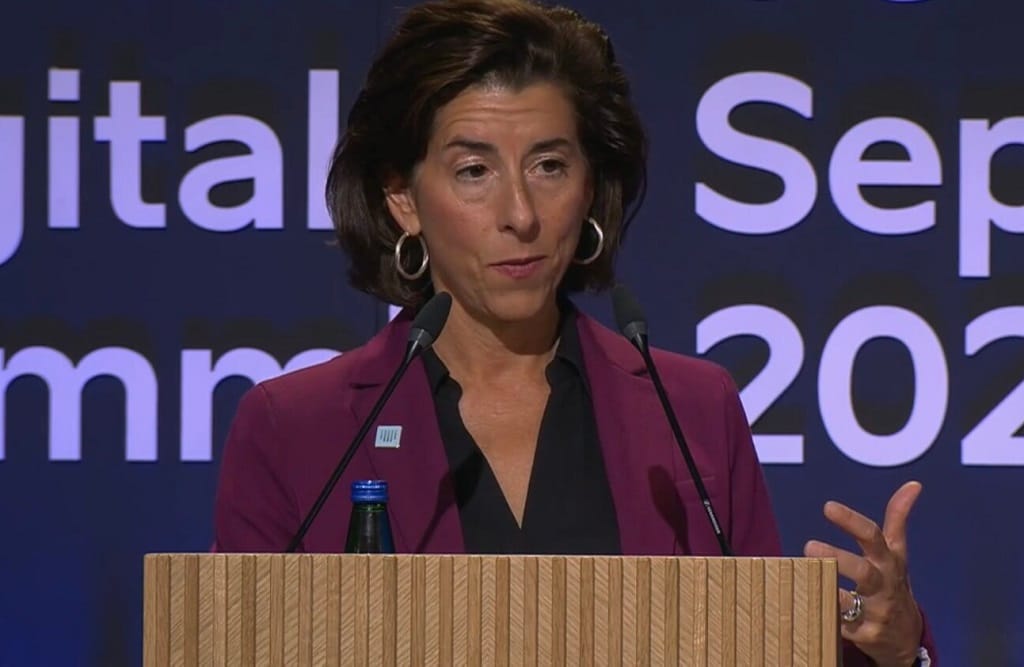Localize Broadband Infrastructure Expansion, Commerce Secretary Raimondo Says
Speaking at US Telecom forum, Raimondo also raised concerns about supply chain’s impact on broadband rollout.
T.J. York

WASHINGTON, October 28, 2021 –Commerce Secretary Gina Raimondo said that her department was attempting to “localize” broadband expansion efforts by adapting efforts to the particularized needs of states and localities.
Speaking at a US Telecom Broadband Investment Forum on Thursday, Raimondo highlighted the methods to commission maps that detail internet access at a highly granular level and consider the unique technological needs and challenges of each individual community, county and state.
Detailing these localized approaches to expanding broadband access and shrinking the digital divide, Raimondo called broadband “essential” and said that the government must work with the private sector.
She also discussed supply chain issues and the current semiconductor chip shortage. She stressed that national security is the Biden administration’s top priority with regards to the supply chain, and that the administration’s action on the issue will not only maintain national security but create jobs in America.
Raimondo stated that semiconductor chip shortages are being closely monitored and that Biden plans to address them by incentivizing domestic production of chips.
State broadband leaders take their turn
Later during the forum, state broadband officials implementing on the group programs joined a panel discussion, which also touched upon current supply chain issues.
Angie Bailey of the North Carolina Broadband Infrastructure Office expressed concern that there will be less bids from internet providers for broadband development because supply chain issues will decrease the resources of some providers and keep them from being able to bid.
Thursday’s event also featured Jonathan Chaplin, U.S. communications services team head at New Street Research. He outlined ways in which the government can expand fiber infrastructure for “future-proofing” internet accessibility.
He said the government needs to create rules for subsidies that attract private capital, ensure efficiency in fiber deployment, give clear guidelines to states on how to administer funds and funding broadband access rather than competition between internet providers and allowing operators to set prices.









Member discussion